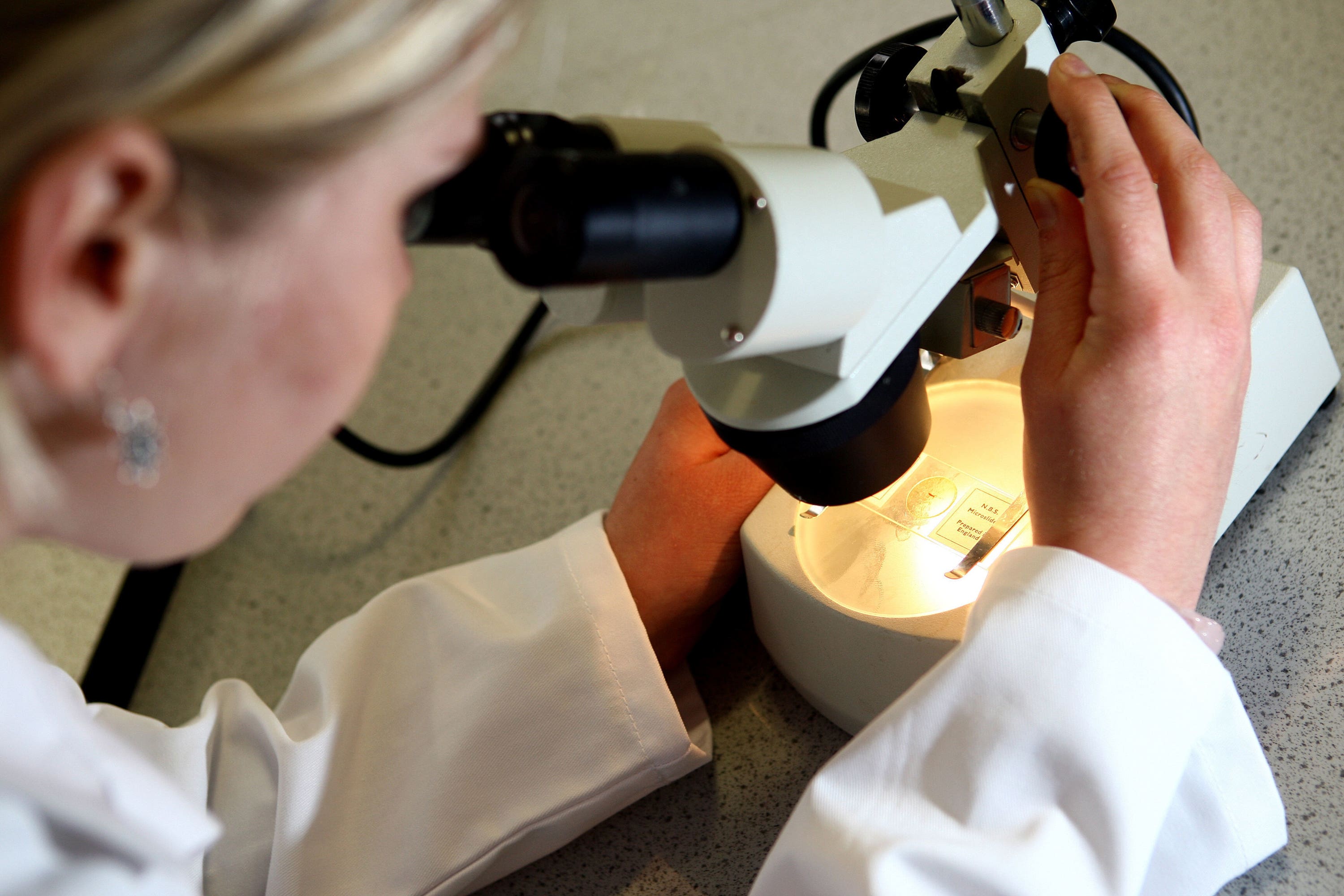Bowel cancer breakthrough as scientists find chemotherapy response could be predicted by existing NHS test
Researchers hope KRAS test can serve renewed function as soon as possible

Your support helps us to tell the story
From reproductive rights to climate change to Big Tech, The Independent is on the ground when the story is developing. Whether it's investigating the financials of Elon Musk's pro-Trump PAC or producing our latest documentary, 'The A Word', which shines a light on the American women fighting for reproductive rights, we know how important it is to parse out the facts from the messaging.
At such a critical moment in US history, we need reporters on the ground. Your donation allows us to keep sending journalists to speak to both sides of the story.
The Independent is trusted by Americans across the entire political spectrum. And unlike many other quality news outlets, we choose not to lock Americans out of our reporting and analysis with paywalls. We believe quality journalism should be available to everyone, paid for by those who can afford it.
Your support makes all the difference.Scientists have found an existing gene test frequently used on the NHS can also shed light on whether a bowel cancer patient will respond positively or negatively to chemotherapy.
Researchers from The Institute of Cancer Research, Imperial College London and the Netherlands Cancer Institute have found the KRAS test can have use beyond its current function of predicting how patients will react to cancer drug cetuximab.
Professor Nicola Valeri, honorary professor of gastrointestinal oncology at The Institute of Cancer Research and Imperial College London, said: “We hope doctors will use this data to improve care for patients with advanced bowel cancer without delay.
“This is the first time we have a genomic marker already used in the clinic that can tell us whether a patient’s cancer will be sensitive or resistant to chemotherapy.”
The researchers came to the results after studying entire genomes of 37 patients with advanced bowel cancer who had already been treated with trifluridine and tipiracil drugs as part of chemotherapy.
Chemotherapy can be a painful process and give side effects, and while it is proven to be helpful for some, others can report no benefit.
This is why scientists are hoping to take a step forward in detecting how an individual will respond which is where the KRAS test came in. From this, the researchers were able to find that those with the genetic mutation KRASG12 were likely to have poor survival chances following trifluridine/tipiracilin treatment.
The result was confirmed by data from a further 960 patients from 36 centres across the UK which led scientists onto the final part of the process. This saw them look at data from the trial RECOURSE and saw patients with the mutation KRASG13, as opposed to 12, saw their survival time triple from 2.9 months without treatment to 8.7 months having had it.
This finding was set against treatment in patients with KRASG12 who had no benefit where both patients who received a placebo and treated patients survived a further six months on average.
Researchers uncovered who did not have KRAS mutations saw their expectancy increase by around two months after having treatment compared to those who had a placebo.
In summary, the team said findings revealed that patients with KRASG12 mutations – representative for just under 30 per cent of all patients with bowel cancer – do not benefit from trifluridine/tipiracil. However, those devoid of mutations in KRAS may gain from trifluridine/tipiracil, and those with a KRASG13 mutation are likely to benefit, they added.
Professor Valeri said: “It will be difficult for some patients to find out that this last-line drug will not benefit them, but this test will mean they are able to avoid unnecessary side effects and have a better quality of life with advanced cancer.
“Fortunately, our findings also reveal a group of patients who see substantial benefits from taking this type of chemotherapy.”
Join our commenting forum
Join thought-provoking conversations, follow other Independent readers and see their replies
Comments